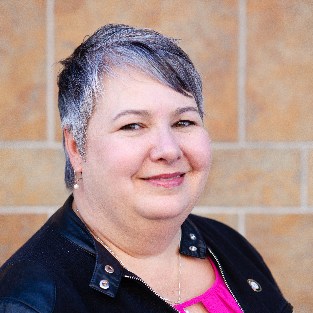On the eve of July 4, 2021, Stacey Grant, senior program director of LISC AmeriCorps, reflects on the contradictions inherent in the holiday and makes the case for how service to country and community can pave a path to healing, growth, liberty and justice for everyone who calls the United States home.
Independence Day is a day that holds singular significance—depending on who you ask. For many, it is a day to honor our nation’s history of overcoming a colonizing power and claiming independence and liberty—a day of picnics, fireworks, and flags. For others, however—especially the descendants of those whom Independence Day did not free—it is a reminder of the continued, collective struggle over injustice and structural racism; a reminder that true freedom has not yet been realized. How can our nation be one when these competing forces—all of which hold truth—must be unraveled and rewoven into independence for all?
Service is a start.
When people think about service, military and Peace Corps service may spring to mind. And before joining LISC over 25 years ago, that’s what I thought of, too. I still recall the catchy recruitment slogans of the Armed Forces, seeking out “the few, the proud,” so they could “aim high” and “be all you can be.” Or the Peace Corps motto proclaiming the “toughest job you’ll ever love.” Service sounded exotic. Intoxicating. Meaningful. It seemed far more desirable than cleaning up the local walking trail or waiting tables at the church supper or helping with the winter coat drive. But I know now that service to community is no less meaningful than service to country. Both are synonymous with service to ourselves. It is one of the most valuable things we, as Americans, can offer in the fight for justice.
Service is sacrifice.
Military families know well the sacrifice it takes to serve our country. National service programs, like LISC AmeriCorps, demand a different kind of sacrifice. Our members give a year or more of their lives to lean into the work demanded to close the racial health, wealth, and opportunity gaps that impact far too many in our country. AmeriCorps members step up to combat pervasive, structural inequities so others can access family-supporting employment and live in affordable, safe and healthy homes; oftentimes, they do this as they are working to achieve those same basic requisites for themselves. Still, AmeriCorps members—the young, the seasoned, and everyone in between—step up to serve and contribute in the very neighborhoods where they live.
Service is strength.
Some would argue that not all service is equal. But I believe every form of service has great value. All service exposes people to different cultures and perspectives and enables them to learn from one another. It builds strong teams. It teaches positive ways to deal with conflict. Service shows us all how to help, to care, and to respect one another. Service forges forever bonds of brotherhood, of sisterhood, of personhood, not easily broken or forgotten. Service can build each of us, and our nation, in ways that contribute to communities where we respect, honor, and celebrate all people.
Service is hope.
Service is a powerful unifying force that has not been fully deployed in our nation. As we see year after year in our AmeriCorps program, national service helps individuals explore their leadership abilities while carrying out programs that make our communities strong and equitable. But the fact is, far more people want to serve than are able to, because there aren’t adequate resources allotted to service programs and the members who carry them out. We need to double down on national service and we need support from our elected officials to do so. Put simply, we need more investment in AmeriCorps.
National service is truly one of the most “American” things we can do. To serve our country, while serving our community, and helping undo the cost of racism — that is a service to each and every one of us, and can create the America that will live up to our fundamental ideals.
Service can help lead us all to independence.
 Stacey Grant, Senior Program Director
Stacey Grant, Senior Program Director
Stacey manages all aspects of LISC’s AmeriCorps program, from ensuring high quality member service assignments and partner selection to managing LISC’s relationship with the Federal AmeriCorps agency and other major funders. Stacey joined LISC in 1996 as an administrative assistant with the LISC Greater Newark office, where she discovered she had a passion for helping residents launch careers in community development through service with AmeriCorps. From Newark, Stacey moved to LISC headquarters to serve as the program officer and, ultimately, senior director for the AmeriCorps program. She holds a B.A. from the College of St. Rose; M.B.A. from Rutgers NJ; and is currently pursuing a Certificate in Transformative Leadership at Pace University.